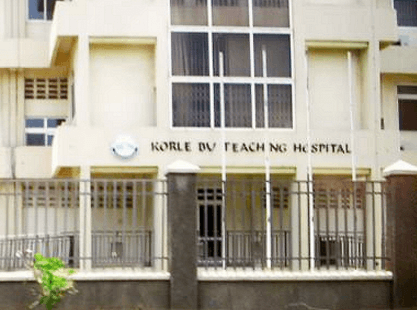The legal and political crisis as applied to Mr. Mohamed and heralded by Prof. Hinds is nothing more than a figment of his imagination
By Stabroek News
Copyright stabroeknews

Dear Editor,
Prof. David Hinds, who describes himself in an interview as ‘a part of the education elite…and a scholar also – don’t forget that!’, and also as an ‘expert on race’, nevertheless had been spilling bile, insults, invective and vulgarity in the direction of some of his Afro-Guyanese brethren, for defecting to the PPP/C camp. This is so in spite of the fact that our Constitution in Article 147 guarantees to citizens the ‘… right to …belong to political parties…for the protection of his or her interests.’ However he seems to have hit “pause” on this harsh criticism long enough to now issue pronouncements on the interplay of our Constitutional law and international treaty law, in so far as he perceives them to apply to the person anticipated to be Leader of the Opposition, Mr. Azruddin Mohamed.
Prof. Hinds states that under our Constitution, Mr. Mohamed can run for and attain office: no problem there, as the leader of the WIN party participated in our recent elections as a presidential candidate and in all probability will become the next Leader of the Opposition. Dr. Hinds however foresees a legal and political crisis, in which the courts will have to decide between international law and domestic law, which takes precedence. In his words, because of international law Mr. Mohamed is ‘under the cloud’ and he foresees a clash between international law and domestic law, to determine ‘which law is supreme’. As I understand it, Dr. Hinds’ anxiety stems from his viewpoint that the Office of Leader of the Opposition is part of Government.
The Office of Leader of the Opposition is listed in the Constitution under Chapter X and Title 5, which deals with ‘The Executive’. Article 51 reads ‘There shall be a Parliament of Guyana, which shall consist of the President and the National Assembly.’ I am hard pressed to comprehend how the Office of Leader of the Opposition could be considered as part of the Government, however, as Article 184 makes it clear that ‘The Leader of the Opposition shall be elected by and from among the non-governmental members of the National Assembly’!
Continuing along his novel path, Prof. Hinds states that although Mr. Mohamed is part of the Government, he has been ‘sanctioned under an international treaty that we have signed on to’. There is one school of thought which holds that where there is a ‘clash between international law and domestic law’ as Dr. Hinds puts it, international law will prevail, provided that the provisions of the treaty have been incorporated into local law. However in this case, if as Dr. Hinds says, a candidate is permitted under our Constitution to assume the post of Leader of the Opposition, any potential clash would be nullified by the Supreme Law clause in the Constitution, which states: ‘This Constitution is the supreme law of Guyana and, if any other law is inconsistent with it, that other law shall, to the extent of the inconsistency, be void’.
Furthermore, the potential legal clash that Prof. Hinds envisages is, in my humble estimation, a non-issue. In fact it begs the question whether Guyana – or Barbados, Botswana, Bhutan, Belgium, any country – would willingly sign on to an international treaty that would allow for the imposition of sanctions by one country against their nationals who are resident at home.
To the best of my knowledge United States Treasury Department OFAC sanctions are not enforced on the basis of any international treaty to which Guyana or any other countries have signed. Rather they are implemented under the authority of that Department on the dubious basis of unilateralism, whereby the US seeks to impose its jurisdiction extra-territorially in third countries. Importantly, the element of consent of the parties which is cardinal in the conclusion of an international treaty is non-existent when it comes to the operation of OFAC sanctions.
In light of the Supreme Law clause in our Constitution and in the absence of a binding international treaty upon which to base the OFAC sanctions, I am minded to conclude that the legal and political crisis heralded by Prof. Hinds is nothing more than a figment of his imagination, what Derek Walcott’s character ‘Basil’ in the classic “Dream on Monkey Mountain” would elaborate as “a banana of the mind”. To ask the courts in Guyana to take judicial notice of such an extra-territorial imposition not grounded in treaty law, the operation of which would be to prevent Mr. Mohamed from functioning as Leader of the Opposition, as provided for in our Constitution, the supreme law, would make a mockery of President Ali’s assertion that ‘our sovereignty is our sovereignty and…is our business’.
If there was no legal and political crisis when sanctions were imposed on Venezuelan President Nicolas Maduro – Chevron has been given permission to resume business, but with conditions – or in Zimbabwe under the late Robert Mugabe, in the case of EU sanctions, then what is so special about Mr. Mohamed? Will Guyana’s extraordinary development thrust come to a screeching halt? Will the oil companies pull out of their billion-dollar investments here? The distinguished US Ambassador had seemed to adopt two positions on this issue, one pre- and the other post- elections, the latter being essentially that they would find a “work around” to the issue; perhaps Dr. Hinds didn’t get the memo.
While Prof Hinds may profess to be an education elite, a scholar and an expert on race, I am reasonably certain that he is not known within academia as an expert in international law. It is precisely for this reason that I am appalled by the authority with which he and others take to the unbridled internet to make these misleading statements on these technical, specialized issues, particularly as his Kool-Aid drinking audience would likely lap it up lock, stock and barrel, without question. In other words, facts matter!
Sincerely,
Neville J. Bissember



